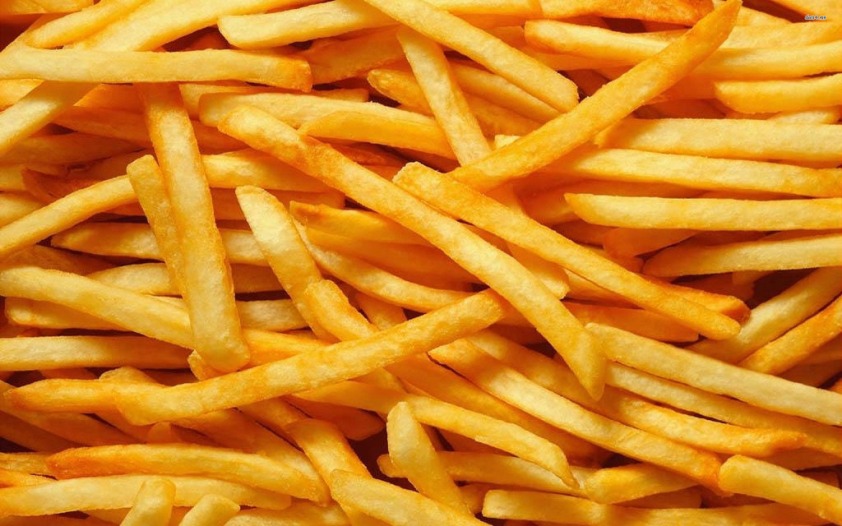Lola Ogunbiyi
Why do fries taste so bad when they are cold? The case of the cold chip…
Have you ever bought a bag of chips from the local take away, got caught up for one reason or the other and ended up coming home to a cold, soggy dinner in a bag? Turns out those fries simply weren’t what you bargained for.

Image Credit: Flickr
Chips are usually deep-fried in a whole lot of oil; it’s what gives them that irresistible golden-yellow crisp. But all of a sudden the glow is gone and you’re left with a pile of cold mush. The grease that plumped out the inner layers of the potato chip is released into the outer layers as the temperature cools and this is what makes it soggy. The change in moisture levels causes the fry to lose its firmness and results in a dry, clammy interior. It also doesn’t help that the chips are tightly rolled in a paper bag. All the steam from the chips will eventually rise and fall, and guess where all that moisture goes? It soaks into the chips making them even more soggy.
Let’s move onto meaty leftovers. After taking last night’s dinner out of the microwave, you might find your chicken feels like cardboard. The truth is, just because we’ve stopped cooking the food, it doesn’t mean the food has necessarily stopped cooking. Food is always in a state of constant chemical changes. There are all sorts of enzymes, minerals and molecules moving in and out of the food cells, in a sort of frantic exchange. Iron can be held responsible for that cardboard texture left on your chicken. It reacts with fatty membranes in the cell causing adverse reactions that break down the good tasting nutrients in our food. Also, most things microwaved don’t really taste that good, at least compared to when they were first made. We’re essentially boiling our food during the reheating process! Water rapidly escapes, drying out our food and making our tastebuds curl away in disgust.
Not all hope is lost though, here are some saving graces for when all you have are your leftovers:
- Using herbs, such as sage and thyme, in your meal can help. These herbs contain little self-sacrificing antioxidants which counteract the oxidation reactions – a primary cause for concern when food deteriorates.
- Store your food in the right conditions! There is no point keeping your food out on the kitchen counter, exposed to air and moisture. Instead, refrigerate it, and keep it tightly wrapped and preferably in the dark.
- If you’re lacking herbs, or you forgot to put your dinner in the fridge, chuck some gravy or sauce on it. Not only will it mask the metallic tastes of microwaved food but it can potentially stop further disruption to the food’s make up via oxygen attack.
You might have read through this article thinking, “actually, this is all rubbish; most of my leftovers taste great”. I’m not one to judge, that may really be the case. But it is more likely that your brain has endured some psychological changes during the course of your life. If you’ve grown up thinking leftover Domino’s pizza is going to taste great in the morning, then your brain and taste buds probably won’t let you down. That, coupled with the ‘good’ and flavoursome chemicals found in food have the ability to work up some truly unexpected delights!
So next time you plan to eat leftovers, weigh it up, would you like magic or mush? The choice is yours… Kinda.